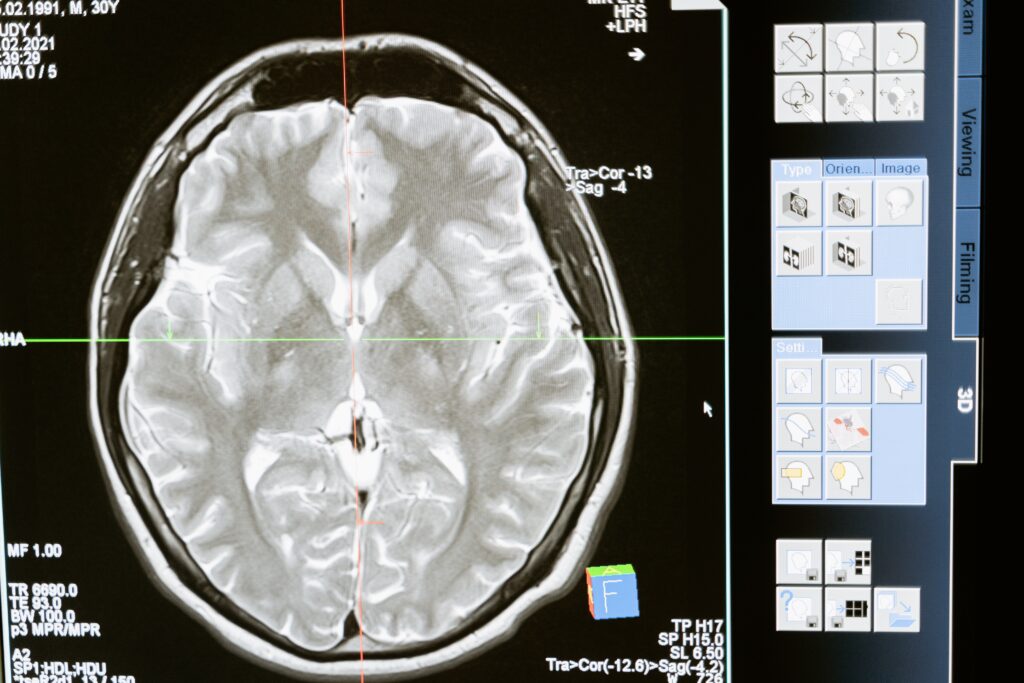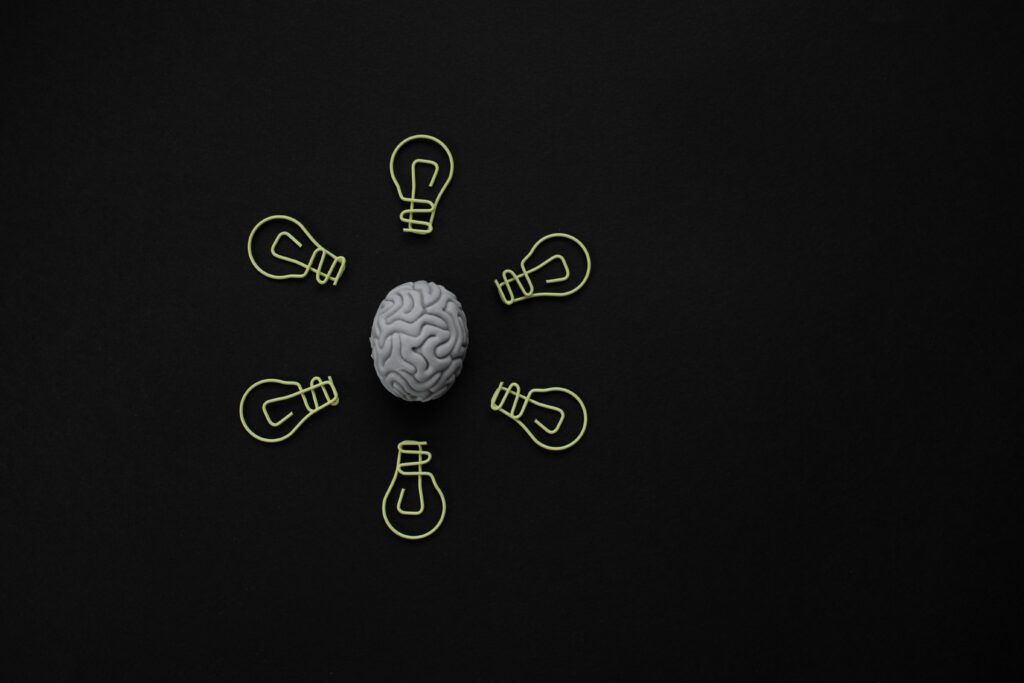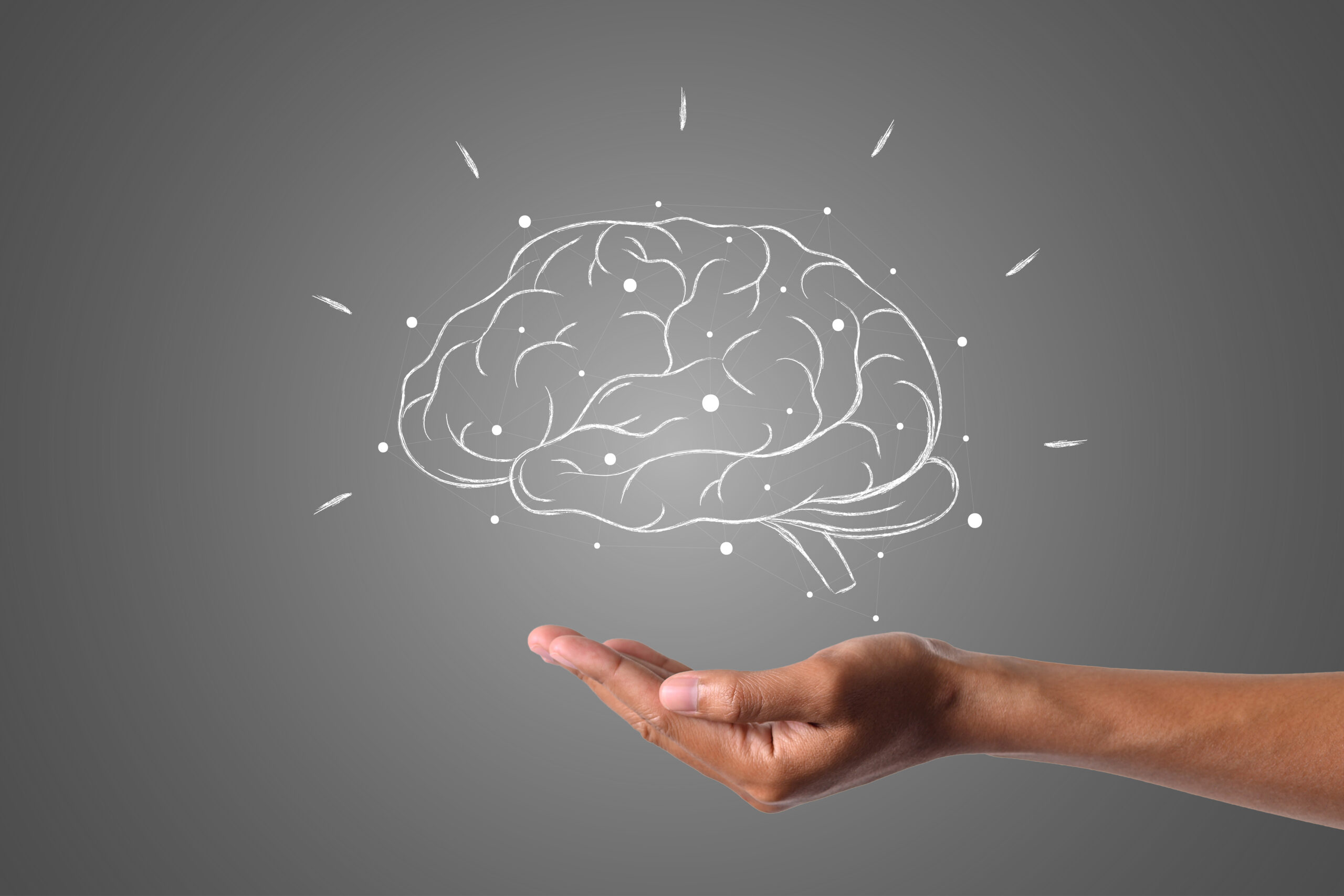Cognitive Impairment in the Elderly: Understanding, Causes, and Management
Contents
- 1 Cognitive Impairment in the Elderly: Understanding, Causes, and Management
- 1.1 Introduction
- 1.2 Table of Contents
- 1.3 What is Cognitive Impairment in the Elderly?
- 1.4 Types of Cognitive Impairment
- 1.5 Causes of Cognitive Impairment
- 1.6 Identifying the Signs and Symptoms
- 1.7 Diagnosing Cognitive Impairment
- 1.8 The Impact on Daily Life
- 1.9 Preventing Cognitive Impairment
- 1.10 Managing Cognitive Impairment
- 1.11 Cognitive Rehabilitation Programs
- 1.12 Nutrition and Brain Health
- 1.13 Physical Activity’s Role in Cognitive Health
- 1.14 Social Engagement and Mental Stimulation
- 1.15 Medications and Treatment Approaches
- 1.16 Supporting Caregivers and Family Members
- 1.17 Navigating Financial and Legal Challenges
- 1.18 Creating a Safe and Supportive Environment
- 1.19 Promoting Emotional Well-being
- 1.20 Future Research and Innovations
- 1.20.0.1 Heart-Healthy Eating for Seniors Tips
- 1.20.0.2 Common Heart Conditions in Old Age and Their Treatments
- 1.20.0.3 Cardiac Rehabilitation for Elderly Patients
- 1.20.0.4 Osteoporosis Prevention in Seniors
- 1.20.0.5 Understanding Arthritis: A Comprehensive Guide to Joint Health
- 1.20.0.6 Managing Arthritis Pain in Seniors
- 1.20.0.7 Exercise Tips for Maintaining Strong Bones in Old Age
- 1.20.0.8 Age-Related Changes in Bone Density and Structure
- 1.21 FAQs About Cognitive Impairment in the Elderly
- 1.22 Conclusion
Read DISCLAIMER
Discover insights into cognitive impairment in the elderly – its causes, signs, and effective management strategies. Learn how to navigate cognitive challenges, enhance brain health, and improve the quality of life for seniors

Introduction
As we age, cognitive changes become more noticeable, and in some cases, cognitive impairment may develop. Cognitive impairment in the elderly is a topic of growing concern, affecting millions of older adults worldwide. This comprehensive article delves into the intricacies of cognitive impairment in the elderly, exploring its causes, signs, management strategies, and the importance of early intervention.
Table of Contents
1. What is Cognitive Impairment in the Elderly?
2. Types of Cognitive Impairment
3. Causes of Cognitive Impairment
4. Identifying the Signs and Symptoms
5. Diagnosing Cognitive Impairment
6. The Impact on Daily Life
7. Preventing Cognitive Impairment
8. Managing Cognitive Impairment
9. Cognitive Rehabilitation Programs
10. Nutrition and Brain Health
11. Physical Activity’s Role in Cognitive Health
12. Social Engagement and Mental Stimulation
13. Medications and Treatment Approaches
14. Supporting Caregivers and Family Members
15. Navigating Financial and Legal Challenges
16. Creating a Safe and Supportive Environment
17. Promoting Emotional Well-being
18. Future Research and Innovations
19. FAQs: Frequently Asked Questions
20. Conclusion

What is Cognitive Impairment in the Elderly?
Cognitive impairment refers to the decline in cognitive functions such as memory, reasoning, attention, and language skills. In the elderly population, it can range from mild cognitive impairment (MCI), where cognitive changes are noticeable but not severe enough to interfere significantly with daily life, to more severe conditions like dementia.
Types of Cognitive Impairment
There are various types of cognitive impairment, each with distinct characteristics and implications. These include MCI, Alzheimer’s disease, vascular dementia, and Lewy body dementia. Understanding these types is crucial for accurate diagnosis and effective management.
Causes of Cognitive Impairment
Cognitive impairment can stem from multiple factors, including age-related changes, genetic predisposition, medical conditions like stroke and diabetes, and lifestyle factors such as sedentary behavior and poor nutrition. Unraveling the causes is essential for tailoring interventions.

Identifying the Signs and Symptoms
Recognizing the early signs of cognitive impairment is essential for timely intervention. These signs may include forgetfulness, difficulty in problem-solving, confusion about time and place, language difficulties, and changes in mood and behavior.
Diagnosing Cognitive Impairment
Proper diagnosis involves a comprehensive assessment, including medical history, cognitive tests, brain imaging, and blood tests. Early detection allows for better management and improved quality of life.

The Impact on Daily Life
Cognitive impairment can significantly impact daily activities, leading to challenges in managing finances, following medication schedules, and maintaining personal hygiene. It also affects interpersonal relationships and social interactions.
Preventing Cognitive Impairment
While not all cognitive decline can be prevented, adopting a brain-healthy lifestyle can reduce the risk. Engaging in physical activity, maintaining a balanced diet, staying socially active, and engaging in mentally stimulating activities all contribute to cognitive health.
Managing Cognitive Impairment
Managing cognitive impairment involves a multidisciplinary approach. Medications, cognitive rehabilitation programs, lifestyle modifications, and support from caregivers and healthcare professionals all play a vital role in enhancing quality of life.

Cognitive Rehabilitation Programs
Cognitive rehabilitation focuses on improving cognitive abilities through targeted exercises and activities. These programs help individuals regain lost skills, enhance memory, and improve problem-solving abilities.
Nutrition and Brain Health
Dietary choices significantly impact the preservation of cognitive well-being. A diet rich in antioxidants, omega-3 fatty acids, and essential nutrients can support cognitive function and reduce the risk of cognitive decline.
Physical Activity’s Role in Cognitive Health
Regular physical activity enhances blood flow to the brain, stimulates the growth of new neurons, and promotes overall brain health. Simple exercises like walking, swimming, and yoga can have profound cognitive benefits.
Social Engagement and Mental Stimulation
Staying socially active and mentally engaged are essential for preventing cognitive decline. Engaging in hobbies, learning new skills, and participating in social activities help keep the brain active and resilient.

Medications and Treatment Approaches
Medical interventions may include medications to manage symptoms and slow the progression of cognitive impairment. Treatment plans are tailored to the individual’s condition and needs.
Supporting Caregivers and Family Members
Caring for a loved one with cognitive impairment can be challenging. Support groups, respite care, and education on coping strategies are essential for caregivers’ well-being.
Cognitive impairment can have financial and legal implications. Planning ahead with legal documents such as power of attorney and healthcare directives can provide clarity and protect the individual’s interests.

Creating a Safe and Supportive Environment
Modifying the living environment to ensure safety is crucial. Removing hazards, installing assistive devices, and providing a structured routine can promote independence and reduce the risk of accidents.
Promoting Emotional Well-being
Cognitive impairment can lead to emotional distress for both the individual and their family. Counseling, support groups, and emotional wellness practices can help individuals and their caregivers navigate these challenges.

Future Research and Innovations
Ongoing research aims to better understand cognitive impairment’s underlying mechanisms and develop innovative treatments. Staying informed about the latest advancements is crucial for proactive management.
Read more about
Heart-Healthy Eating for Seniors Tips
Common Heart Conditions in Old Age and Their Treatments
Cardiac Rehabilitation for Elderly Patients
Osteoporosis Prevention in Seniors
Understanding Arthritis: A Comprehensive Guide to Joint Health
Managing Arthritis Pain in Seniors
Exercise Tips for Maintaining Strong Bones in Old Age
Age-Related Changes in Bone Density and Structure
FAQs About Cognitive Impairment in the Elderly
1. What is cognitive impairment in the elderly?
Cognitive impairment refers to a decline in cognitive functions like memory, reasoning, attention, and language skills. It can range from mild cognitive impairment (MCI) to more severe conditions like dementia.
2. What are the types of cognitive impairment?
Types include MCI, Alzheimer’s disease, vascular dementia, and Lewy body dementia. Each has distinct characteristics and implications for diagnosis and management.
3. What causes cognitive impairment in the elderly?
Cognitive impairment can stem from age-related changes, genetics, medical conditions like stroke and diabetes, and lifestyle factors such as sedentary behavior and poor nutrition.
4. How can I identify signs of cognitive impairment?
Early signs may include forgetfulness, difficulty in problem-solving, confusion about time and place, language difficulties, and changes in mood and behavior.
5. How is cognitive impairment diagnosed?
Diagnosis involves a comprehensive assessment, including medical history, cognitive tests, brain imaging, and blood tests. Early detection enables better management.
6. How does cognitive impairment impact daily life?
It can affect managing finances, medication schedules, personal hygiene, relationships, and social interactions, leading to significant challenges.
7. Can cognitive decline be prevented?
While not all decline can be prevented, adopting a brain-healthy lifestyle, including physical activity, a balanced diet, social engagement, and mental stimulation, can reduce the risk.
8. What approaches are used to manage cognitive impairment?
Management involves medications, cognitive rehabilitation programs, lifestyle modifications, and support from caregivers and healthcare professionals.
9. What are cognitive rehabilitation programs?
These programs focus on targeted exercises and activities to improve cognitive abilities, memory, and problem-solving skills.
10. How does nutrition impact cognitive health?
A diet rich in antioxidants, omega-3 fatty acids, and essential nutrients can support cognitive function and reduce the risk of decline.
11. What role does physical activity play in cognitive health?
Regular physical activity enhances blood flow to the brain, stimulates neuron growth, and promotes overall cognitive well-being.
12. How important is social engagement and mental stimulation?
Staying socially active and mentally engaged through hobbies, learning, and social activities helps maintain brain resilience and prevent decline.
13. Can medications help with cognitive impairment?
Medications can manage symptoms and slow progression. Therapeutic approaches are customized to suit the unique requirements of each individual.
14. How can caregivers and family members be supported?
Support groups, respite care, and education on coping strategies are essential for caregivers’ well-being.
15. How can financial and legal challenges be navigated?
Planning with legal documents like power of attorney and healthcare directives can provide clarity and protect interests.
16. How can a safe environment be created for individuals with cognitive impairment?
Modifying the living environment, removing hazards, and providing structure can promote independence and safety.
17. How can emotional well-being be promoted?
Counseling, support groups, and emotional wellness practices aid individuals and caregivers in navigating emotional distress.
18. What does future research aim to achieve in cognitive impairment?
Ongoing research seeks to understand underlying mechanisms and develop innovative treatments for cognitive impairment.
19. What are the potential benefits of staying informed about cognitive impairment?
Staying informed helps individuals and caregivers proactively manage challenges and make informed decisions.
20. How can brain-healthy habits improve the quality of life for seniors with cognitive impairment?
By adopting a brain-healthy lifestyle, seniors can enhance their cognitive well-being and maintain a higher quality of life.
21. Can cognitive impairment be reversed?
While some cognitive decline might be slowed or managed, complete reversal is generally not possible.
22. Are there support services available for caregivers of individuals with cognitive impairment?
Yes, various support services, including counseling, support groups, and respite care, are available to assist caregivers.
23. How does cognitive impairment affect communication skills?
Cognitive impairment can lead to difficulties in expressing thoughts and understanding language, affecting communication.
24. Are there any alternative therapies that can help manage cognitive impairment?
Some individuals explore alternative therapies like art therapy, music therapy, or reminiscence therapy to manage cognitive impairment symptoms.
25. How does cognitive impairment impact decision-making abilities?
Cognitive impairment can impair judgment and decision-making abilities, potentially leading to challenges in various aspects of life.
26. Can cognitive impairment affect motor skills and coordination?
Yes, cognitive impairment can impact motor skills and coordination, which can lead to difficulties in performing everyday tasks.
27. Is cognitive impairment a normal part of aging?
While some cognitive changes are normal with aging, significant cognitive impairment that interferes with daily functioning is not a typical aspect of normal aging.
28. How can technology assist individuals with cognitive impairment?
Technology can offer various aids, such as reminder apps, GPS tracking devices, and communication tools, to support individuals with cognitive impairment.
29. What are some practical strategies for improving memory in individuals with cognitive impairment?
Practical strategies include using memory aids like calendars and lists, maintaining routines, and engaging in memory-enhancing activities.
30. How does cognitive impairment impact emotional responses and behavior?
Cognitive impairment can lead to changes in emotional responses and behaviors, potentially causing mood swings, irritability, or apathy.
Conclusion
Cognitive impairment in the elderly is a complex and multifaceted issue that requires comprehensive understanding and compassionate care. By staying informed, promoting brain-healthy habits, and seeking timely intervention, individuals can navigate the challenges of cognitive impairment while maintaining a high quality of life.

Thanks for sharing. I read many of your blog posts, cool, your blog is very good.
I don’t think the title of your article matches the content lol. Just kidding, mainly because I had some doubts after reading the article.
Can you be more specific about the content of your article? After reading it, I still have some doubts. Hope you can help me.
Your point of view caught my eye and was very interesting. Thanks. I have a question for you.
Thanks for sharing. I read many of your blog posts, cool, your blog is very good.
Thank you, your article surprised me, there is such an excellent point of view. Thank you for sharing, I learned a lot.
Thank you for being of assistance to me. I really loved this article. http://www.kayswell.com
Your articles are extremely helpful to me. May I ask for more information? http://www.kayswell.com
How can I find out more about it? http://www.kayswell.com
Good web site! I truly love how it is easy on my eyes and the data are well written. http://www.kayswell.com I am wondering how I could be notified whenever a new post has been made. I’ve subscribed to your RSS which must do the trick! Have a nice day!
You’ve been great to me. Thank you! http://www.kayswell.com
Your articles are extremely helpful to me. Please provide more information! http://www.kayswell.com
Great beat ! I would like to apprentice while you amend your web site, http://www.kayswell.com how could i subscribe for a blog site? The account helped me a acceptable deal. I had been a little bit acquainted of this your broadcast provided bright clear concept
I enjoyed reading your piece and it provided me with a lot of value. http://www.kayswell.com
Thank you for your help and this post. It’s been great. http://www.kayswell.com
Your articles are extremely helpful to me. Please provide more information! http://www.kayswell.com
Your articles are very helpful to me. May I request more information? http://www.kayswell.com
Great content! Super high-quality! Keep it up! http://www.kayswell.com
Thanks for posting. I really enjoyed reading it, especially because it addressed my problem. http://www.kayswell.com It helped me a lot and I hope it will help others too.
Its like you read my mind! You appear to know so much about this, like you wrote the book in it or something. http://www.kayswell.com
Hi there, its fastidious article concerning media print, we all be aware of media is a great source of data. http://www.kayswell.com
You actually make it seem so easy with your presentation but I find this matter to be actually something that I think I would never understand. It seems too complex and very broad for me. I’m looking forward for your next post, I will try to get the hang of it! http://www.kayswell.com
I’m not that much of a internet reader to be honest but your blogs really nice, keep it up! I’ll go ahead and bookmark your website to come back in the future. http://www.kayswell.com
Aw, this was a very nice post. Taking the time and actual effort to create a great article… but what can I say… I hesitate a whole lot and never seem to get nearly anything done. http://www.kayswell.com
We stumbled over here coming from a different web page and thought I might check things out. I like what I see so now i’m following you.Look forward to finding out about your web page yet again. http://www.kayswell.com
Your article helped me a lot, is there any more related content? Thanks!
I’m not that much of a internet reader to be honest but your blogs really nice, keep it up! I’ll go ahead and bookmark your website to come back in the future. http://www.kayswell.com
I drop a cimment each time I appreciate a article on a website or I have something
to add to the conversation. It’s a result of the sincerness displayed in the post I read.
And after this post Cognitive Impairment in the Elderly: Understanding, Causes, and Management.
I was moved enough to post a thkught 🙂 I do have a couple of questions for you if it’s allright.
Is it just me or do some of thee remarks appear like they are left by brain dead folks?
😛 And, if you are posting oon additional online sites, I’d
like to keep up with you. Could you list every one of your
community sites like your twitter feed, Facebook page or linkedin profile?
Feel free to surf to mmy blog :: 雷电模拟器宏按键设置
Can you be more specific about the content of your article? After reading it, I still have some doubts. Hope you can help me.
Thank you for your sharing. I am worried that I lack creative ideas. It is your article that makes me full of hope. Thank you. But, I have a question, can you help me?
Can you be more specific about the content of your article? After reading it, I still have some doubts. Hope you can help me.